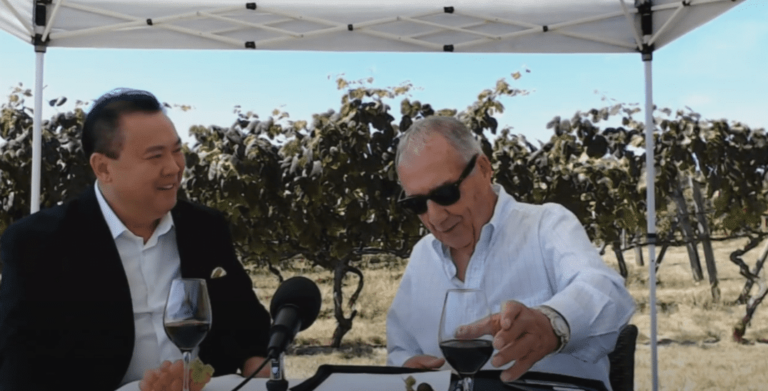Counterfeit wines have been a constant problem for China for many years. We spoke with Natalie Wang, founder and editor of Vino-Joy, the only English written website, based in Hong-Kong, specifically about Wines in China. She was also one of the 50 women recently nominated to receive a Women in Wine and Spirits Awards (WINWSA).
Natalie wrote a blog post on Linkedin about her recent experience during a dinner with counterfeit wines in China. During her interview in our Wine Buzz Interview, she commented her thoughts.
“One of my friends brought a bottle of China conti (counterfeit), so I posted it on social media. Some people were very angry about the China-made fake wine. We were talking about how this wine got to be made and distributed in China.”
Some stories say that the wine was made by Chateau de Pommard, for Macau, specifically for a casino. There are also stories that the wine was allegedly sold as a private label to an importer in Guangdong.
The particular wine that Natalie posted on Linkedin is not un-known to the wine market. It has been around in the market for many years. However, the winery hasn’t been doing their part to protect their brand. We all recognize that China has a problem with fake wines, with counterfeit, look-a-like wines, IP infringement. There are similar brands, like Penfold or Lafitte having similar counterfeit problems in China, but they held the authorities responsible, and launched lengthy lawsuits against the counterfeiters.
“Yet the attitude from the Chateau (I reached out and never received a reply), is that it is China fake wines, China’s problem.
Natalie believes that wineries should be doing more about this counterfeit problem, especially the wineries. The wineries themselves should be prodding authorities in China to do more. When you import or export wines, you are always taking photos for evidence. This evidence can be sent to the authorities as proof, but she said that it has not been done.
“Someone wrote about this in the Decanter 6 years ago. You should have presented that as evidence to the authorities. The importers are still till today are telling people that the wines are being supplied by the Chateau. We got the source from the Chateau. We are labelling as private label. This is not for sale. If this is the case, the winery should be talking directly to the importer.
The impact of counterfeit wines in China is apparent, but there are many factors that are contributing to it and still many more options that wineries can take to protect their brand.
To learn more about Natalie or Vino-joy.com, please visit their website.




